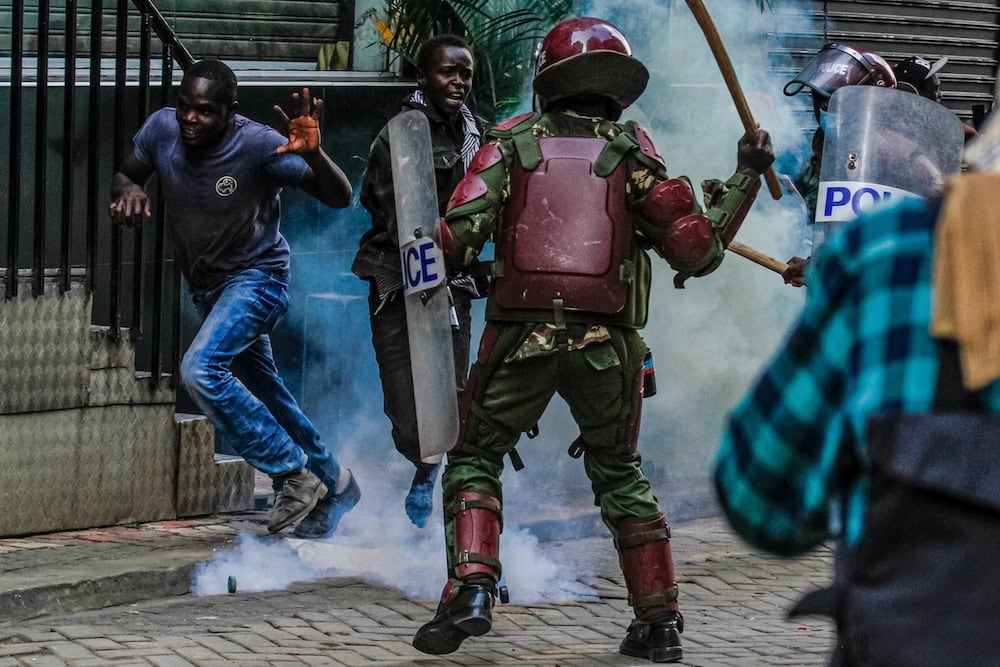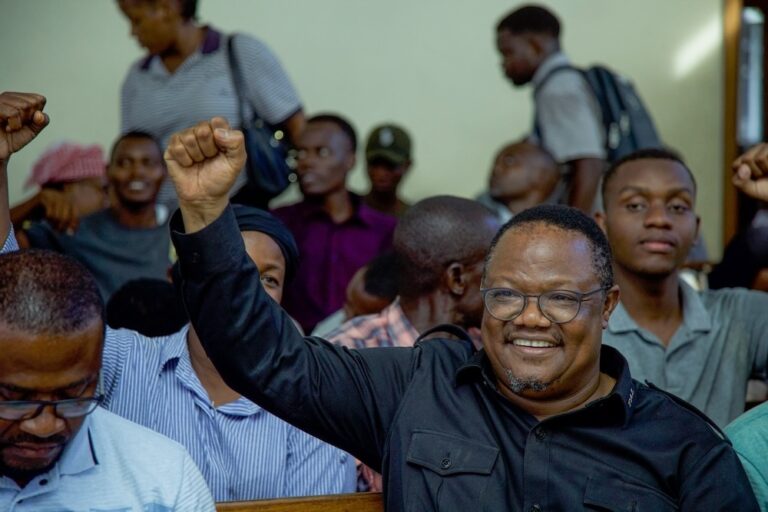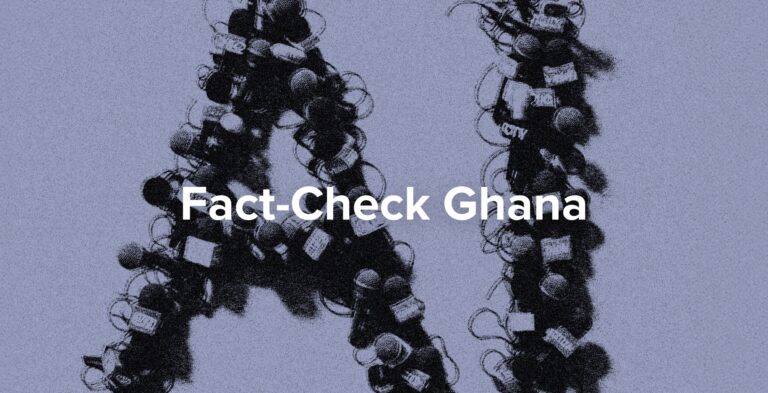June 2024 in Africa: A free expression and civic space round-up, based on IFEX member reports and news from the region.
First, some good news. A landmark ruling by Namibia’s High Court on 21 June declaring two colonial-era laws unconstitutional marked a pivotal moment for the country’s LGBTQI+ community. As The Jurist explains: “The High Court declared that provisions in the Criminal Procedure Act and the Defence Act criminalizing consensual sex acts between males constituted unfair discrimination. The court noted that similar sexual conduct between males and females, as well as between females, was not criminalized”.
The case filed by Namibian LGBTQI+ activist Friedel Dausab in June 2022 challenged the constitutionality of the country’s laws. He also petitioned the court to nullify all previous convictions under them, reports Amnesty International. “Dausab, . . . argued the laws infringed his constitutional rights to equality, dignity, privacy, freedom of expression, and freedom of association, based on his sexual orientation.”
The Namibia Media Trust called the ruling “courageous and just”, and the rights organisation Out and Proud applauded “this historic decision which underscores the obligation of the state to protect the rights of all its citizens.” The United Nations Development Programme (UNDP) noted that “decriminalizing same-sex relations promotes a more inclusive and tolerant society, aiding in the achievement of the Sustainable Development Goals and supporting Namibia’s commitment to leave no one behind in its development agenda.”
However, the victory has been met by pushback, primarily driven by faith and religious leaders.
The anti-gay movement Stop Homosexuality and Same-Sex Marriage in Namibia (Hossamina), has reiterated its demand for the removal or voluntary resignation of Minister of Justice Yvonne Dausab and has organised a mass demonstration for 12 August.
The first call for the minister’s resignation came after the May 2023 Supreme Court decision recognising same-sex unions performed abroad. Accordingly, in June 2023, Namibia’s parliament passed two bills restricting the rights of the LGBTQI+ community. In defining marriage strictly as a union between a man and a woman, the bills discriminated against LGBTQI+ individuals and went further to also criminalise any support, celebration, or promotion of same-sex unions through the imposition of fines and penalties of up to six years in jail.
Amnesty International has also documented alarming incidents of violent cyber-attacks, a surge in online harassment against LGBTQI+ individuals, and frequent targeting and scapegoating by politicians ahead of the November 2024 elections.
Kenya’s protests and lethal crackdowns
On 24 June, Foreign Policy reports, “an estimated two dozen people were slain – some in front of the Kenyan parliament and others in Nairobi’s slums. They were killed by the country’s security forces for exercising their human rights to freedom of expression and peaceful assembly.”
It was the culmination of a week’s violence, during which young protesters opposing new taxes and the government’s excesses were abducted, arrested, beaten, shot, and tear-gassed. This day represented the apex of a week filled with aggression, throughout which young demonstrators faced kidnapping, detention, assault, gunfire, and exposure to tear gas.
Even the withdrawal of the controversial and highly unpopular finance bill by Kenyan President William Ruto is a move considered too little, too late, and the brutal police crackdown on the nationwide dissent has done little to deter the protestors. Following their success in halting the $2.7 billion tax hike, the young activists are demanding Ruto’s resignation.
What started out as dissent against the passage of the finance bill on 25 June has extended and transformed into a revolt against the underlying issues. These include: the long history of government disregard for Kenyan lives, impunity for police repression, failure to address gender-based violence, inadequate response to national emergencies, and political manipulation of ethnic divisions. The perceived greed and unchecked corruption among the political class, coupled with frustration over mismanagement of public funds and lack of accountability, further exacerbate the situation.
In terms of impact, as The Conversation points out: “While dramatic change is unlikely, the prospects of widespread unrest may compel political leaders to be more attuned to the public interest, a shift that could eventually lead to more inclusive economic policies.”
Bail denied to opposition party members in Zimbabwe
Courts have refused to grant bail to 78 members of the Citizens Coalition for Change, including party leader, Jameson Timba. Outside court, the police assaulted demonstrators, who were protesting the denial of bail for the 78 activists who have been in detention since mid-June.
Khanyo Farisè, deputy regional director of Amnesty International (AI) in East and Southern Africa (ESARO), observes that: “the arrest and continued arbitrary detention of opposition members who had peacefully gathered at a private residence is part of a disturbing pattern of repression against people exercising their rights to freedom of peaceful assembly and expression.”
The #Avondale78, as they are being termed, were arrested and charged with inciting public violence while commemorating the International Day of the African Child at Timba’s residence. Officials detained them for more than the legally permitted 48-hour period without conducting a court hearing. The group included a nursing mother and a minor – a 17-year-old – who has since been released into the custody of his parents.
In her blog, titled Visible Scars of Torture, Zimbabwean author Cathy Buckle detailed the disturbing video footage of detainees entering the Harare Magistrate Court. The recording shows the detainees, including several injured young women struggling to walk, under heavy police guard. Journalists noted signs of torture, and lawyers reported that several detainees needed medical care. One woman, who is alleged to have broken her leg when she was severely assaulted, had to be carried into court by one of her colleagues.
Ethiopia’s diminished press freedom
The recent release of Ethiopian journalists Belay Manaye, Bekalu Alamirew, and Tewodros Zerfu represents a slight respite in the ongoing suppression of civil society. However, attempts to silence dissenting voices continue, marked by persistent attacks on independent media. Over the past few years, the space for civic activities and respect for human rights, including freedoms of expression and association, has been significantly undermined in Ethiopia.
Manaye and Alamirew, founders of Ethio News and Alpha TV respectively, along with Zerfu, a presenter for Yegna TV and Menelik TV, were confined at the Awash Arba military camp before their release. Reporters Without Borders (RSF) continues to advocate for the release of five additional journalists, all of whom were arrested in 2023. Genet Asmamaw of Yegna Media, Meskerem Abera from Ethio Nikat Media, and Dawit Begashaw of Arat Kilowere were all arrested in April. Abay Zewdu, who directs the Amhara Media Center on YouTube, was taken into custody in August. Additionally, Gobeze Sisay, the founder of The Voice of Amhara on YouTube, was extradited from Djibouti and detained in May.
The Ethiopian Press Freedom Defenders, a collective of Ethiopian media professionals, “has determined that over two hundred Ethiopian media personnel have endured unjust incarceration since 2019.” This is supported by Human Rights Watch, who note that: “attempts to silence civil society have been accompanied by continued attacks on independent media and dissenting voices.”
Threats intensify in Mozambique ahead of elections
Over the past several years, concern has been raised at the escalating intimidation and violence against journalists in Mozambique. As the country heads toward elections, the media sector faces an increasingly hostile environment marked by threats, harassment, and assaults, especially those covering election-related events.
Recent incidents reported by the Committee to Protect Journalists (CPJ) highlight several violations including the case of Sheila Wilson, a journalist for the Center for Democracy and Human Rights, who was arrested while covering a protest in Maputo and held incommunicado for six hours. Additionally, STV journalists Laves Macatane and Hélder Matwassa were assaulted and robbed of their camera during the same event, despite a significant police presence. In an unrelated incident, earlier in March, STV reporter Jorge Marcos and camera operator Verson Paulo were attacked by private security guards in Zambézia province.
CPJ Africa programme coordinator Muthoki Mumo has condemned the lack of police protection for journalists and called for investigations into these incidents. Mozambican authorities are being urged to take these threats seriously and ensure the safety and protection of journalists as they perform their crucial role in covering the elections.
West African journalists jailed for doing their work
Journalists in Burkina Faso are facing a severe clampdown, as evidenced by the abduction of Atiana Serge Oulon, editor-in-chief of L’Évènement, on 24 June 24.
His kidnapping by unidentified assailants and the subsequent demand for his electronic devices by individuals claiming to be from the National Intelligence Agency have raised alarms about press freedom in the country. Oulon’s current location remains unknown. This incident follows closely on the heels of a one-month suspension imposed on L’Évènement by the Superior Council for Communication (CSC) due to an article on alleged embezzlement within the military.
Additionally, columnist Kalifara Séré has gone missing after being summoned for interrogation, further intensifying concerns over the safety of journalists. The regulator has also targeted Lefaso.net for alleged misinformation and failure to moderate user comments, while TV5 Monde-Afrique faces a six-month suspension for purported disinformation.
Malian journalist Yeri Bocoum, director of the Facebook news page YBC-Communication, has been missing since 8 June. His disappearance followed his coverage of a banned opposition demonstration and an incident he reported involving “malicious individuals” on motorcycles. Despite his family reporting the case to local authorities, there have been no updates on his whereabouts as of 27 June.
Bocoum’s case is particularly concerning, given the political tensions in Mali, where the transitional government has prohibited political party activities and the media regulator has warned against covering such events. Although the High Authority for Communication (HAC) stated that Bocoum’s work was outside its jurisdiction, Radio France Internationale (RFI) reported that he might be detained by state security services. CPJ has called for an urgent investigation into his disappearance, highlighting the threat it poses to press freedom in the country.
The media in Guinea is facing escalating repression, with reports from the Media Foundation of West Africa (MFWA) of journalists being arbitrarily detained, intimidated, and censored by security forces. Notably, the country’s media regulator has suspended Mamadou Taslima Diallo aka Williams Campbell, the host of Star en ligne. Additionally, the HAC has enforced harsh censorship measures, suspending the news website www.depecheguinee.com and its editor, Abdoul Latif Diallo. These actions, along with the blocking of Mosaïque Guinée’s website and the expulsion of French journalist Thomas Dietrich, signal the increasing restrictions on press freedom.
Niger has reinstated prison sentences for defamation, insults, and mis/disinformation, justifying the move as working on balancing freedom of expression with individual rights protection and maintaining public peace. This decision reverses the previous government’s 2022 amendment that replaced prison sentences with fines, and points to the regression in press freedom since the July 2023 coup. Journalists face severe intimidation and many are unwilling to speak out due to fear of exile or imprisonment. The MFWA expresses deep concern over these developments, highlighting cases like Samira Sabou’s kidnapping and the detention of Soumma Maïga and Ousmane Toudu.
In brief
The Collaboration on International ICT Policy for East and Southern Africa (CIPESA) is set to play a pivotal role in rallying African stakeholders around internet governance, emphasizing the vital contribution of an educated and active civil society to sustainable development. Through the Civil Society Alliances for Digital Empowerment (CADE) project, inaugurated in Geneva on May 31, CIPESA will facilitate the empowerment of civil society organizations (CSOs), enabling them to exert greater influence in the realm of digital policy-making and international governance.
An article on alleged corruption in the Ugandan parliament led to the arrest of journalists Dickson Mubiru and Alirabaki Ssengooba. In an unexpected move, their charges shifted from defamation to operating an online publication without a license. The arrests come against the backdrop of the president’s anti-corruption campaign, which has recently resulted in the detention of several MPs. The Human Rights Network for Journalists-Uganda (HRNJ-Uganda) executive director Robert Ssempala said: “journalists must be protected, not persecuted for exercising their freedom of expression and holding those in power accountable.”



